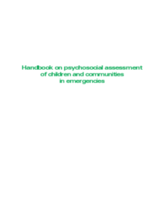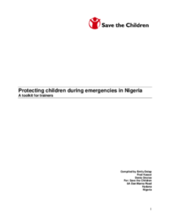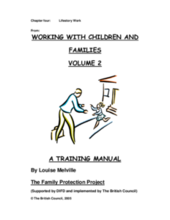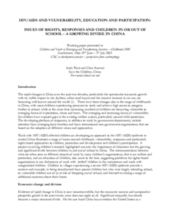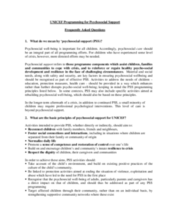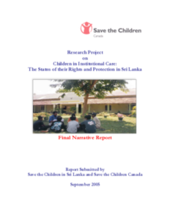Displaying 301 - 310 of 345
A guidebook focusing on the assessment to be conducted when an emergency first hits or just after a major event in an armed conflict. Outlines the preparation needs of an assessment team and describes what an assessment should concentrate on.
A comprehensive training toolkit for organizations and individuals who are directly involved in child protection and welfare during emergencies. Covers key topics related to children in emergencies, and includes learning points, classroom and field exercises, suggested itineraries and handouts.
Practitioner guidance on communicating and recording children’s care history in order to increase their understanding of what happened to them and to help prepare children for moves
Guidelines for good practices in conducting assessments following an emergency.
Outlines the changing vulnerabilities of children in modern China. Underlines the problematic definition of vulnerability in child protection programmes and advocates holistic approaches that integrate child participation in decision-making.
Focuses on the general principles and actions for developing children’s centres in China. Centres would help initiate national child protection services and children’s participation.
Practical guidelines emphasizing the importance of and rationale for ethical standards in child-related research. Annexes include country-specific resources and example documents.
This document highlights a children’s saving program in the state of Missouri, USA. The five-year initiative focuses on increasing financial knowledge and self-efficacy, as well as saving accounts, among children and parents. The end goal is to increase student engagement in post-secondary education and training.
Helpful resource for defining key terms, issues, and practices in psychosocial support. Contains a short list of recommended tools for support and monitoring of psychosocial support interventions.
A situation analysis of children in institutional care that includes policy implications and key recommendations.

